Nelson Mandela Week 2024, University of Galway.

On a glorious spring day in March we set up our interactive installation: ‘Where do you Belong?’ outside the Arts na mac Leinn (student building) in the University of Galway. We had many ideas on what to try out, but of course the audience took us to unknown places!
As usual, as soon as the map was up we had people wanting to put their pin on the map.
It is always amazing how such a simple request and question can stir emotion and empathy in the participants.
‘Where do I belong?, What do you mean? You mean where I’m from? Where I live? Where I’m born?? Can I use more than one pin? No one really knows this, but actually I feel I belong to….!’
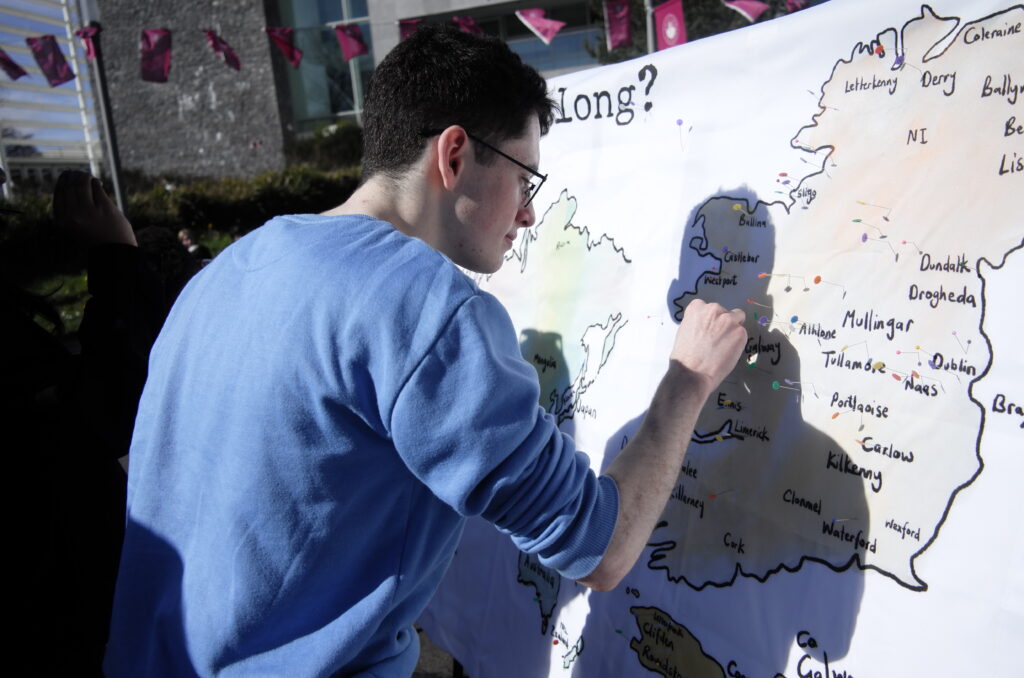
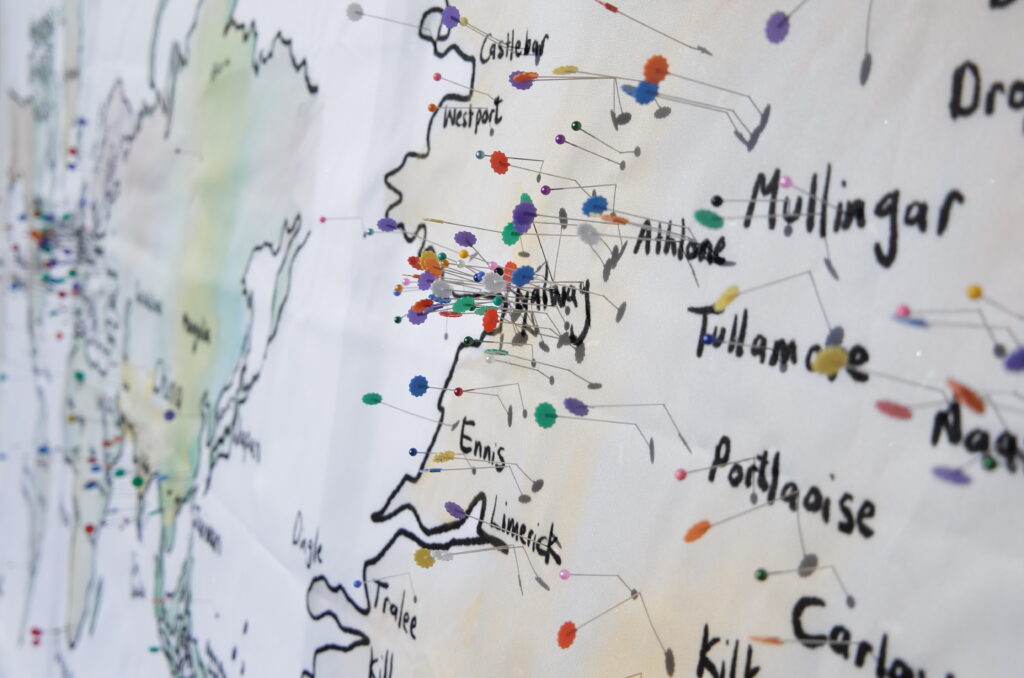
Our facilitators had diverse ideas of the sense of belonging themselves. And when asking themselves the same question they had a variety of answers:
‘I belong to people. I belong to my friends, to groups of people that I love’
‘I have no clue where I belong!? This is something I think about everyday as I don’t know if it was the right thing for me and my family to move here. Should we leave, Should we stay???’
‘I belong to the world. I have travelled my whole life. I feel I belong everywhere.’
‘I have lived here for 50 years, I feel I belong here, but to ‘true’ Galwegians I am still a ‘Blow-In’.’
‘I am Gaeilgeoir, but I’m born in London and grew up there, yet now I live here. I might belong to my identity more than a place.’
‘I’m born in Africa, yet on my passport it says I’m born in Scandinavia and that’s where I grew up. My whole childhood I wished I was black just to prove to the other kids that I wasn’t kidding.’
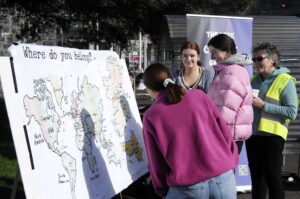
During a Belonging event we want diverse ideas of Belonging to be discussed and reflected upon. The sense of belonging contributes to resilience and mental well being yet we seldom have the luxury to reflect on our idea of belonging. It was lovely to create the space for reflection and giving participants space to be heard in their own sense of belonging. During the 3 hours that we held the event about 400 people took part in discussion and in putting pins on the map.
As always, we had an Invisible Theatre element to the event. Invisible Theatre is what the name suggests: Invisible to the Audience (Spect-Actors). The scenes that we had prepared were rather inspired by Augusto Boal’s techniques than being true to TO. However when having the Belonging event, we have found that it works as conversation starters and, if deemed safe by the actors, they take it to a more controversial level.
We prepared characters with diverse ideas of belonging, thus they could challenge each other’s ideas in improvised discussions by the map (invisible theatre should be prepared scenes, but we have found this works better for this event) . These stand points were carefully chosen to promote the normality of diversity, and challenge societal polarisation in which people question other people’s sense of belonging.
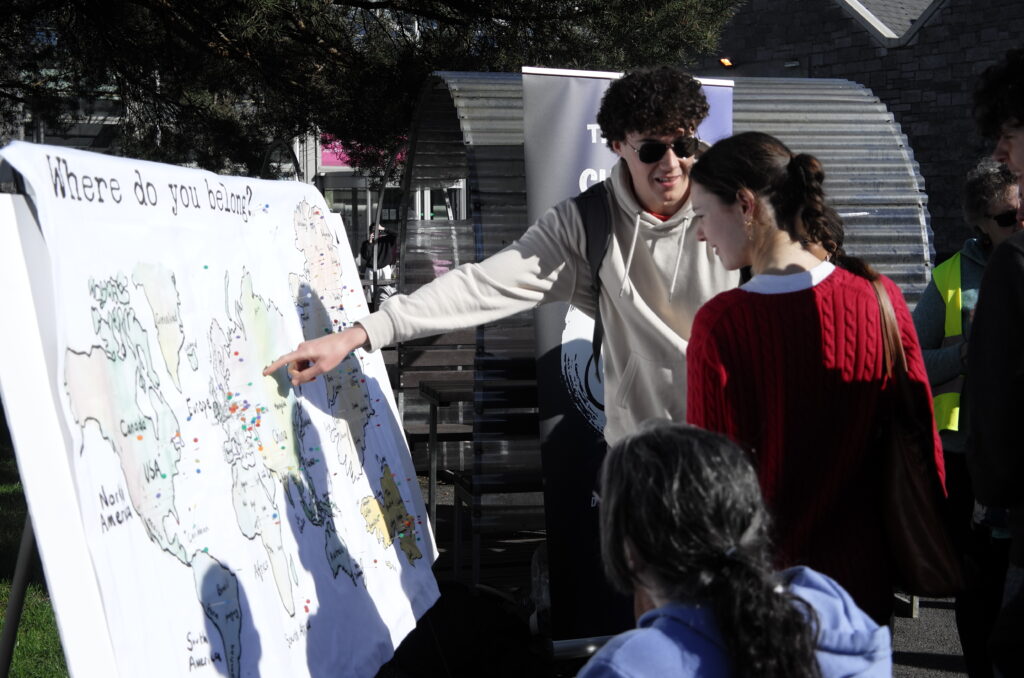
One small scene was for example: An actor would put a pin in London, yet another actor would say: ‘Hey, what are you doing?! I know you are a Gaeilgeoir, are you giving up your roots?!’ The discussion about belonging being an Identity versus to a Place where you are born starts. These discussions are made beside other participants so that they can overhear, and possibly interact (which would be the magic moment where the spectator becomes the spect-actor).
In previous events, when we have had more prepared scenes, this element has caused lively discussions, and we had to have safety elements such as stand-by actors, distractors, and safe dens to hide out to let the conversation cool down, before trying again.
However, as many of our facilitators this day were students themselves, and the participants were likely someone they knew, our scenes did not stretch that far.
Yet our feeling was that participants went away with a little bit more of a sense of Belonging, and with the idea that we can belong in so many ways, all being equally valid.
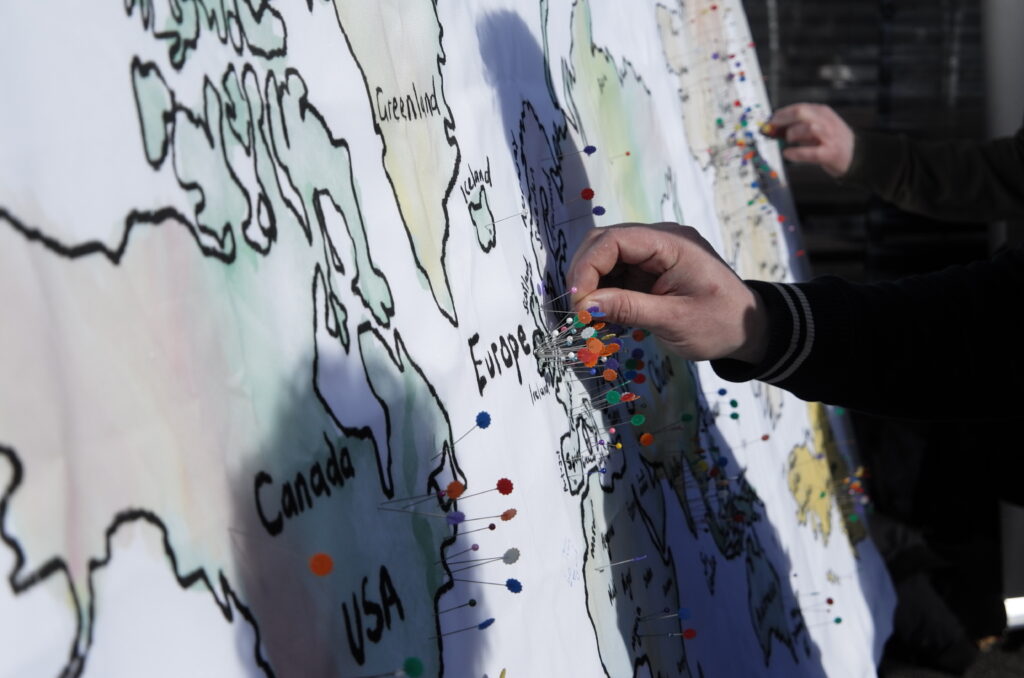
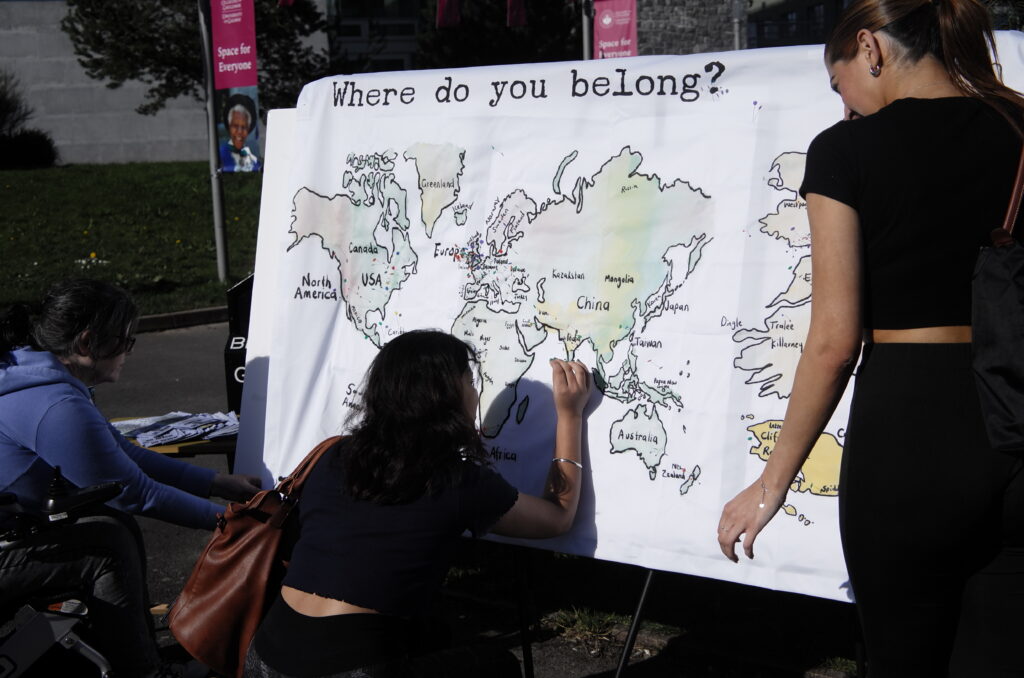
As already noted, the responses to the simple inquiry ‘where do you belong’, engages those asking and responding on a rich and varied trip, dipping in and out of other people’s diverse and multiple sense of belonging.
Whether people were still at school, beginning their adult life, working and studying in places miles from where they grew up, creating new family units in new places, or projecting into a future dream of being elsewhere, diversity of belonging was certainly the norm. This is despite Universities being seen stereo-typically as places of homogeneity in terms of class, age and ethnicity.
Conversations of belonging, whether definite or full of connections, brought and added their richness of perspectives, life experiences and local and global connections to their sense of belonging in Galway and other places or no-place, but also to other universal ideas of spiritual, planetary and human connectedness.
Hopefully those conversations continue over the months and travel to homes, social gatherings, places of work and study and maybe in lectures and seminars, as it has with us who facilitated it.
Janna Lindstrom for TFCGalway.

